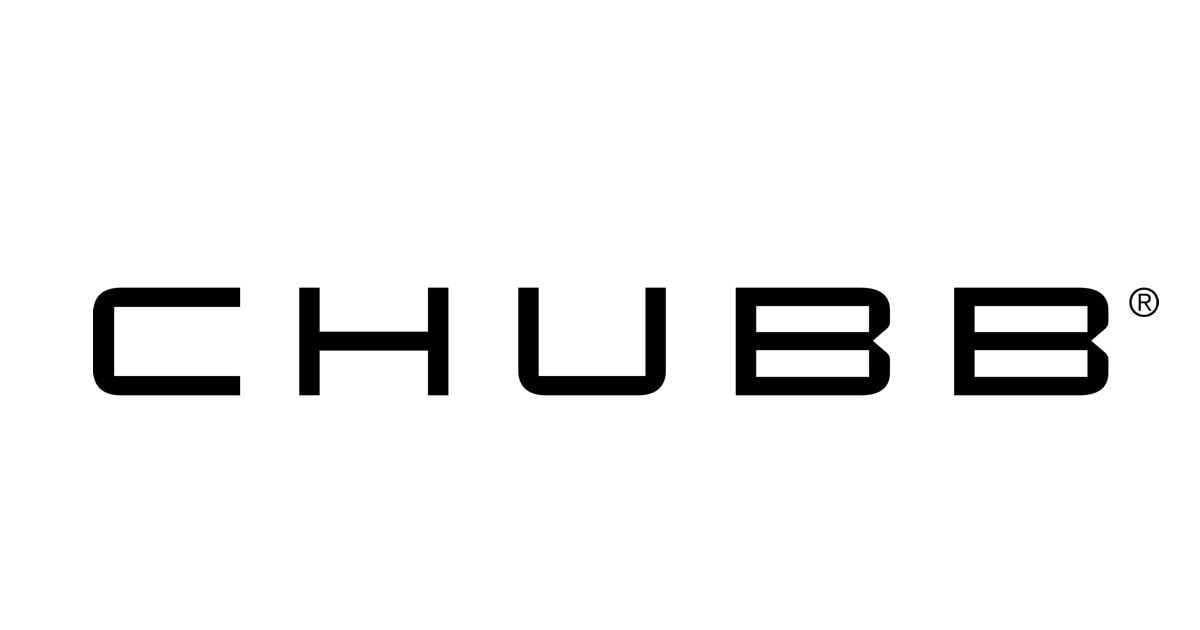The average cost of homeowners insurance in Wisconsin is $1,125 per year, or about $94 per month, according to a NerdWallet analysis. That’s less than the national average of $1,820 per year.
Note: Some insurance companies included in this article may have made changes in their underwriting practices and no longer issue new policies in your state.
Why you can trust NerdWallet
Our writers and editors follow strict editorial guidelines to ensure fairness and accuracy in our writing and data analyses. You can trust the prices we show you because our data analysts take rigorous measures to eliminate inaccuracies in pricing data and may update rates for accuracy as new information becomes available.
We include rates from every locale in the country where coverage is offered and data is available. When comparing rates for different coverage amounts and backgrounds, we change only one variable at a time, so you can easily see how each factor affects pricing.
Our sample homeowner had good credit, $300,000 of dwelling coverage, $300,000 of liability coverage and a $1,000 deductible.
The best homeowners insurance in Wisconsin
If you’re looking to buy homeowners insurance from a well-rated national brand, consider one of these insurers from NerdWallet’s list of the Best Homeowners Insurance Companies.
More about the best home insurance companies in Wisconsin
Farmers
Those seeking benefits like diminishing deductibles and claims forgiveness may want to consider Farmers.
Coverage options
More than average
Average set of discounts
NAIC complaints
Fewer than expected
Farmers
Those seeking benefits like diminishing deductibles and claims forgiveness may want to consider Farmers.
Coverage options
More than average
Average set of discounts
NAIC complaints
Fewer than expected
Homeowners policies from Farmers may include two valuable types of insurance: extended dwelling and replacement cost coverage. Extended dwelling coverage gives you extra insurance for the structure of your house, while replacement cost coverage offers higher reimbursement for stolen or destroyed belongings.
Some Farmers policies also come with perks that can save you money. For example, with claim forgiveness, Farmers won’t raise your rate for a claim as long as you haven’t filed one within the past five years.
State Farm
Well-established insurer with a lengthy list of coverage options.
Coverage options
More than average
Average set of discounts
NAIC complaints
Fewer than expected
State Farm
Well-established insurer with a lengthy list of coverage options.
Coverage options
More than average
Average set of discounts
NAIC complaints
Fewer than expected
As America’s largest insurer, State Farm stands out for its long list of coverage options. Its policies generally include extra dwelling coverage in case it costs more than expected to rebuild your home after a covered disaster. You may also be able to add coverage for things like identity theft, damage from backed-up drains and personal injury liability.
State Farm offers a free Ting device as a perk for home insurance policyholders. Ting is a smart plug that monitors your home’s electrical network to help prevent fires.
Chubb
Perks and high coverage limits for affluent homeowners.
Coverage options
About average
Great set of discounts
NAIC complaints
Far fewer than expected

Chubb
Perks and high coverage limits for affluent homeowners.
Coverage options
About average
Great set of discounts
NAIC complaints
Far fewer than expected
Chubb caters to high-value homes and draws far fewer consumer complaints than expected for a company of its size, according to the National Association of Insurance Commissioners. Its home insurance policies come with some great perks, including extended replacement cost in case it costs more than your dwelling limit to rebuild your home after a disaster.
Chubb policyholders may also be able to take advantage of the company’s HomeScan service, which uses infrared cameras to look for problems behind the walls of your home.

American Family
Comprehensive coverage for homeowners in 19 states, mostly in the West and Midwest.
Coverage options
More than average
Average set of discounts
NAIC complaints
Fewer than expected

American Family
Comprehensive coverage for homeowners in 19 states, mostly in the West and Midwest.
Coverage options
More than average
Average set of discounts
NAIC complaints
Fewer than expected
Founded in Madison, Wisconsin, American Family receives fewer consumer complaints than expected for a company of its size. You may be able to customize your policy with optional add-ons such as identity theft, equipment breakdown or service line coverage, which pays for repairs to water, power or other underground lines that run to your house.
Homeowners may be able to save on their premiums by installing smart-home devices, bundling multiple policies or setting up automatic payments.

Nationwide
For shoppers seeking a broad range of coverage options, Nationwide may fit the bill.
Coverage options
More than average
Great set of discounts
NAIC complaints
Close to expected

Nationwide
For shoppers seeking a broad range of coverage options, Nationwide may fit the bill.
Coverage options
More than average
Great set of discounts
NAIC complaints
Close to expected
We like Nationwide for its wide variety of coverage options. For example, its standard homeowners insurance policy generally includes ordinance or law coverage, which can help pay to bring your home up to current building codes after a covered claim. You can add other coverage for things like identity theft and damage from backed-up sewers and drains.
Depending on how much personal assistance you need, you can get a quote for homeowners insurance on the Nationwide website or work with a local agent instead. You can also use the website to pay bills, file claims or check claim status.

USAA
Offers perks for the military community.
Coverage options
Below average
Average set of discounts
NAIC complaints
Far fewer than expected

USAA
Offers perks for the military community.
Coverage options
Below average
Average set of discounts
NAIC complaints
Far fewer than expected
USAA sells homeowners insurance to veterans, active military and their families. If you fall into one of those groups, you might want to look into USAA’s offerings. The company’s homeowners policies include some unique perks such as deductible-free coverage for military uniforms and coverage for identity theft.
Homeowners in Wisconsin can take part in the company’s Connected Home program, which gives you a discount on your policy if you buy and install approved smart home devices. These include water leak sensors, cameras and thermostats.
How much does homeowners insurance cost in Wisconsin?
The average annual cost of home insurance in Wisconsin is $1,125. That’s 38% less than the national average of $1,820.
In most U.S. states, including Wisconsin, many insurers use your credit-based insurance score to help set rates. Your insurance score is similar but not identical to your traditional credit score.
In Wisconsin, those with poor credit pay an average of $2,680 per year for homeowners insurance, according to NerdWallet’s rate analysis. That’s 138% more than those with good credit.
Average cost of homeowners insurance in Wisconsin by city
How much you pay for homeowners insurance in Wisconsin depends on where you live. For instance, the average cost of home insurance in Milwaukee is $1,165 per year, while homeowners in Madison pay $1,055 per year, on average.
|
Average annual rate |
Average monthly rate |
|
|---|---|---|
|
Brookfield |
||
|
Eau Claire |
||
|
Fond du Lac |
||
|
Janesville |
||
|
Menomonee Falls |
||
|
New Berlin |
||
|
Oconomowoc |
||
|
Stevens Point |
||
|
Sun Prairie |
||
The cheapest home insurance in Wisconsin
Here are the insurers we found with average annual rates below the Wisconsin average of $1,125.
What to know about Wisconsin homeowners insurance
You’ll want to consider the risks of severe weather events, such as seasonal storms and flooding, while shopping for homeowners insurance in Wisconsin.
Flooding
Wisconsin’s beautiful rivers and lakes can pose a significant risk to homeowners, especially when spring thaw or heavy rainfall brings flooding. Floodwaters can cause extensive damage to your home, and standard homeowners insurance policies typically do not cover flood damage. As a result, homeowners in flood-prone areas may need to purchase separate flood insurance to protect their property from water damage.
To find out if you’re at risk, check out the Federal Emergency Management Agency’s flood maps or visit RiskFactor.com, a website from the nonprofit First Street Foundation. Even if your property is deemed low risk, it may be worthwhile to purchase flood insurance for extra peace of mind. Over 20% of flood claims come from areas outside of designated high-risk flood zones.
Remember that while you can purchase flood coverage at any time, there’s typically a 30-day waiting period before the insurance takes effect. Here’s more information about flood insurance and waiting periods.
Winter storms
Wisconsin experiences harsh winter weather, including heavy snowfall, ice storms and freezing temperatures. These conditions can lead to ice dams, roof collapses and frozen pipes, causing significant damage to homes.
A standard homeowners insurance policy typically covers winter storm-related damages. You can still take some measures to prevent damage, like using a rake to clear snow off the first few feet of your roof and keeping exterior vents clear of snow.
There is nuance to what types of damage are covered, so it’s important to review your policy carefully. For example, seepage behind your drywall caused by a melting ice dam may be covered, but you may need a separate flood insurance policy to cover seepage through your foundation.
Tornadoes
Although tornadoes are not as common in Wisconsin as in other states, the Badger State still averages 23 tornadoes each year. While they vary in strength, tornadoes can severely damage homes, including roofs, windows and the overall structure.
A standard homeowners insurance policy often includes wind damage, including any caused by tornadoes. Read your policy closely, though, as you may have a separate wind deductible. These can be a flat rate, such as $1,000, or a percentage of your dwelling coverage. For example, your policy may have a $1,000 deductible for most claims and a 1% deductible for wind claims. If your policy has $250,000 worth of dwelling coverage, you’d have to pay for the first $2,500 of wind damage yourself.
Hailstorms
Wisconsin is susceptible to hailstorms, particularly during the spring and summer months. These storms can bring strong winds, lightning, and large hail.
Hail damage is typically included in your standard home insurance policy, but read your policy closely, as it may come with a separate deductible similar to those for wind damage.
Wisconsin insurance department
The Wisconsin Office of the Commissioner of Insurance oversees the insurance industry and serves as a resource for consumers. You can get answers to general questions about insurance through the website or by phone at 800-236-8517. If you need to file a complaint against your insurer, you can do so using an online form or by mail.
Looking for more insurance in Wisconsin?
Amanda Shapland contributed to this story.
Is homeowners insurance required in Wisconsin?
Homeowners insurance is not legally required by Wisconsin state law. However, your lender may require you to purchase home insurance.
Does Wisconsin home insurance cover flooding?
Standard homeowners insurance policies in Wisconsin do not cover flooding. If you live in a flood plain or an area at risk for floods, you should consider buying separate flood insurance.
How can I save money on homeowners insurance in Wisconsin?
There are several ways to save money on homeowners insurance in Wisconsin:
-
Shop around to make sure you’re getting the best rate.
-
Choose a higher deductible. In case of any claims, you’ll pay more out of pocket, but your premiums will be lower.
This post was originally published on Nerd Wallet





